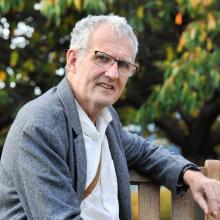Cancer is a killer.
About one-third of those who die in New Zealand each year will lose their lives due to some form of cancer.
Roughly the same percentage of us will contract some form of cancer during our lifetimes.
As the life expectancy of New Zealand’s population increases, so too will the number of people who have to endure the uncertainty sparked by a cancer diagnosis.
Frighteningly, that one-third of the population is projected to soon reach one-half.
The Otago Daily Times has published several stories in recent times about people who have suffered harm while waiting for cancer treatment in the South.

People like Kathryn Harper, who died from a lung cancer which could likely have been cured if treatment had started earlier.
People like Stephen Hoffman, whose much-delayed prostate cancer treatment meant his prognosis went from promising to be being unable to work again.
These people have bravely told their stories to the newspaper for the same reasons the Daily Times publishes them.
They do not want other people to suffer what they and their families have.
A newspaper is a reflection of what is happening in its community and right now many southerners are in fear of getting caught up in the machinations of a cancer-treatment system seemingly unable to cope with the case load it faces.
One thing must be stressed: Otago and Southland are blessed with some very talented cancer clinicians who do their utmost every day to combat the ravages of this deadly disease.
Once a patient actually makes it in to see a doctor or clinician, their care will oft times be exemplary. But the key issue is the inordinate length of time southerners are having to wait to see these dedicated professionals.
Waiting lists for radiation oncology crested 150 people earlier this year, and dozens of people are lingering on waiting lists elsewhere within the cancer treatment system.
An Official Information Act request has discovered at least 27 people on the medical oncology list have suffered harm while waiting for treatment.
That is just one of many cancer waiting lists — there will be other people with their own sorry stories to tell.
People who are ready and willing to fight for their lives cannot even get in the ring because the scheduling of scarce resources means they are forced to wait anxiously.
And all the while the malignancy in their bodies continues to grow.
Time and money are crucial factors in all of this; the southern cancer workforce can only work so many hours in the day and only so much money is available to finance this section of a large and complex health system.
But time is a precious commodity for patients with a disease which has the best treatment outcomes if it is detected and treated early.
Not everyone has the money to be able to avail themselves of the private health system.
Nor does everyone have the good luck to live somewhere in New Zealand where cancer diagnosis and treatment is much swifter.
Two years after the late Winton farmer Blair Vining brought the phrase ‘‘postcode healthcare’’ to wider attention during his battle to improve cancer services, it persists: the SDHB ranks towards the bottom in many cancer statistics, in some cases by a wide margin.
The Cancer Control Agency, a recently-established organisation which Mr Vining’s advocacy did much to bring into being, has been paying close attention to the situation in the South and is working with the DHB to improve matters.
We will be told that there is no quick fix for the quandary southern cancer patients have found themselves in — through no fault of their own.
However, that must not be allowed to stymie efforts to find one regardless.
A proposed 10-year cancer treatment plan health authorities are working on is an important step.
But it will not help people who face death in 10 months or 10 weeks if they do not receive the healthcare they so desperately need right now.
Comments
The government is killing us in the south by allowing these waits to happen and allowing discriminatory policy in funding models. The models are broken: also basic capture of need is also not allowed to happen - as soon as a referral is made for cancer investigation that needs to be captured and the person, NHI number, is captured from that point on, in assessing outcome, assessing quality management systems - not the present play of not wanting to know to keep lists down. It is medical, it is science, it is data feedback loops and we want to know what happens, how to do it better, what went wrong - but presently they the power boffins play some game of dice.












